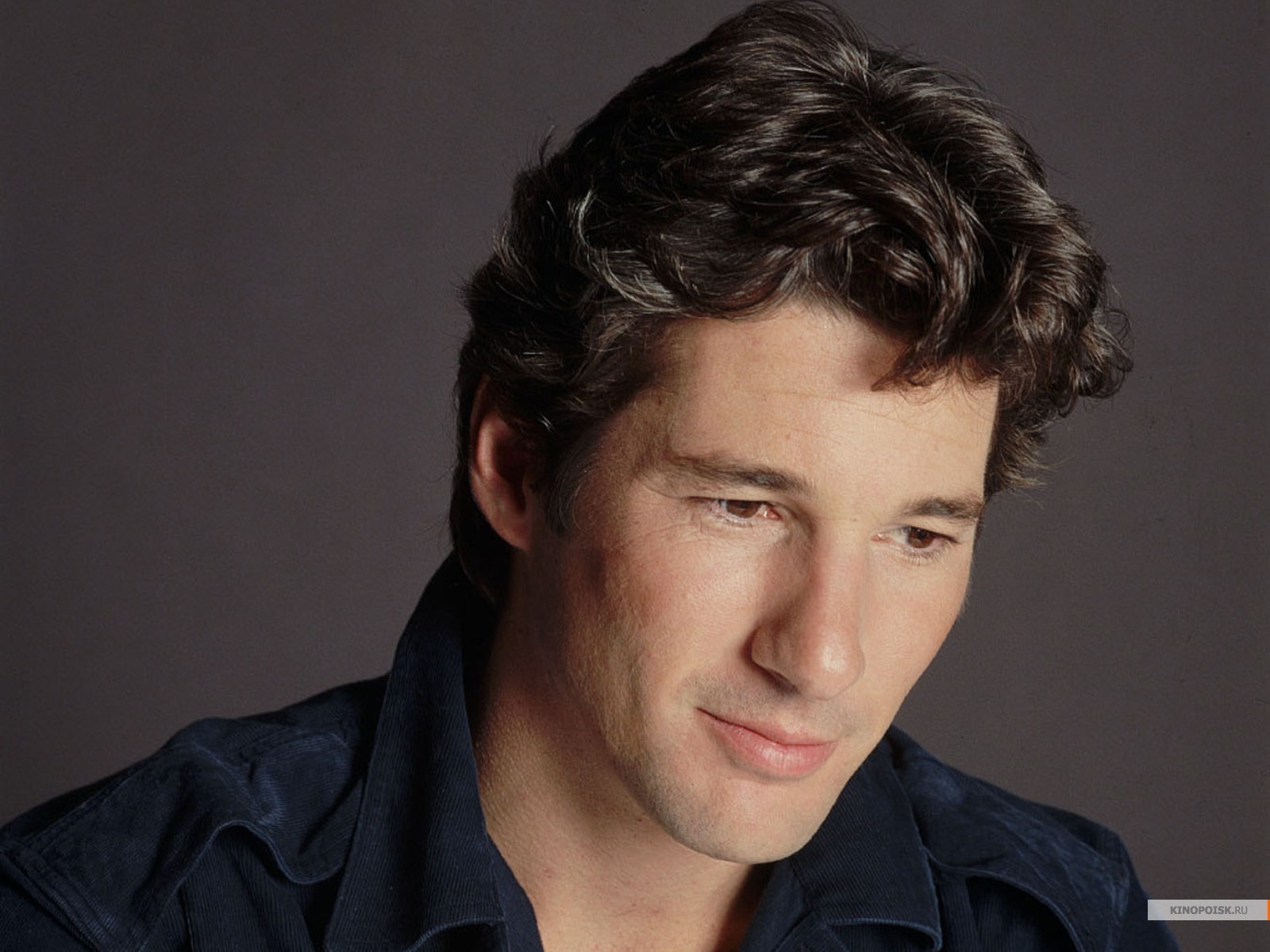Richard Harrison: Unveiling The Enduring Legacy Of A Prolific Actor
In the vast and ever-evolving landscape of cinema, certain names resonate with a particular charm, often tied to specific eras or genres. Among these, the name Richard Harrison stands out, synonymous with a remarkable career that spanned decades and left an indelible mark on the worlds of peplum and spaghetti westerns. While the name "Richard" itself carries a rich tapestry of history and meaning, as we shall explore, it is the individual behind this classic moniker, Richard Harrison the actor, whose journey we embark upon. His story is not merely one of film roles, but of dedication, adaptability, and an enduring presence in a unique segment of cinematic history.
This article delves deep into the life and career of Richard Harrison, the actor, exploring the trajectory that led him from aspiring talent to a celebrated figure in European genre cinema. We will uncover the nuances of his performances, the impact he had on the films he graced, and contextualize his contributions within the broader narrative of the film industry. Furthermore, we will take a fascinating detour into the etymology and cultural significance of the name "Richard" itself, a name that has been carried by rulers, detectives, and, indeed, many memorable figures, including the subject of our exploration.
Table of Contents
- The Enduring Name: Richard's Rich Heritage
- Who is Richard Harrison the Actor?
- Biography of Richard Harrison: A Life on Screen
- Personal Data & Biodata: Richard Harrison
- Impact and Legacy in Genre Cinema
- The Name Richard in Broader Pop Culture and History
- Conclusion: The Lasting Imprint of Richard Harrison
The Enduring Name: Richard's Rich Heritage
Before we immerse ourselves fully in the cinematic exploits of Richard Harrison, it is worth pausing to appreciate the very name he bears. "Richard" is not just a collection of syllables; it is a name steeped in history, carrying connotations of strength, leadership, and a timeless appeal. Its prevalence across cultures and centuries speaks volumes about its enduring charm and the qualities it evokes.
Origin and Profound Meaning of "Richard"
The name Richard is a boy's name of German origin, meaning "brave ruler." This powerful etymology is derived from the Old Germanic elements "ric," meaning "ruler" or "king," and "hart," meaning "hard," "firm," or "brave." This combination paints a vivid picture of a leader who is not only in command but also possesses unwavering courage and resilience. It's a name that has been passed down through generations, maintaining its classic and enduring choice for boys, with roots deeply embedded in history.
The timeless appeal of "Richard" is evident in its continuous use. It is a classic and enduring masculine name that has stood the test of time, transcending fads and remaining a steadfast choice for parents worldwide. The very sound of it suggests a certain gravitas and reliability, qualities often associated with figures of authority and heroism. In this article, we will delve into the origin, meaning, variations, and cultural influences of the name Richard, providing a comprehensive understanding of its journey through time.
Historical Popularity and Royal Connections
The name Richard was one of the most popular names during the late Middle Ages, a testament to its widespread acceptance and admiration. Its Germanic roots and royal connections undoubtedly contributed to its prominence. For instance, England's King Richard Coeur de Lion, a crusading knight, is one of the most iconic figures associated with the name, embodying the "brave ruler" meaning with his legendary exploits and leadership.
Introduced into England by the Normans, Richard quickly became a common English, German, and French male name. Its adaptability allowed it to be used in many more languages, particularly across Europe. This widespread adoption underscores the universal appeal of its meaning and the positive attributes it signifies. While the U.S. Census Bureau ranks "Richard" as #629 in terms of the most common surnames in America, appearing 53,893 times in the 2010 census, its prevalence as a given name far surpasses this, cementing its place as a cornerstone of Western nomenclature.
Who is Richard Harrison the Actor?
With the rich heritage of the name "Richard" now established, we turn our attention to a specific individual who carried this name with distinction in the realm of cinema: Richard Harrison, the actor. Born on May 26, 1935, in Salt Lake City, Utah, Harrison embarked on a career that would see him become a prominent face in European genre films, particularly during the 1960s and 1970s. His physique, rugged good looks, and an undeniable screen presence made him a natural fit for the action-oriented roles that defined much of his work.
Unlike some Hollywood contemporaries who achieved global superstardom, Richard Harrison carved out a niche for himself in a different cinematic ecosystem. He became a staple in Italian productions, often working on films that were designed for international appeal, frequently dubbed into multiple languages. His career trajectory highlights a fascinating aspect of film history, where actors could find significant success and build extensive filmographies outside the traditional studio system of Hollywood. Richard Harrison's dedication to his craft, even in often demanding and fast-paced productions, solidified his reputation as a reliable and charismatic performer.
Biography of Richard Harrison: A Life on Screen
Richard Harrison's journey into acting was not a straightforward path to Hollywood stardom, but rather a unique trajectory that led him to become a prolific and recognizable figure in European cinema. His career is a testament to the opportunities that existed for American actors willing to work abroad, particularly in Italy's thriving film industry.
Early Life and Aspirations
Born in Salt Lake City, Utah, Richard Harrison initially pursued studies in architecture before gravitating towards acting. His early career saw him take on minor roles in American television and films in the late 1950s. Like many aspiring actors of his generation, he sought opportunities to hone his craft and gain more substantial roles. It was this pursuit that eventually led him across the Atlantic, where the burgeoning Italian film industry offered a fertile ground for new talent, especially those with an "American look" that was popular in international co-productions.
His physical prowess and athletic build made him an ideal candidate for the "muscleman" roles that were a hallmark of the peplum genre (also known as sword-and-sandal films), which was experiencing a boom in Italy. This move proved to be a pivotal decision, shaping the entire course of his professional life and establishing him as a prominent figure in a distinct cinematic movement.
Career Highlights: From Peplum to Spaghetti Westerns
Richard Harrison's filmography is extensive, boasting over 100 credits, a clear indication of his prolific output. His career can largely be divided into two dominant genres:
- Peplum Films (Sword-and-Sandal): Harrison became a leading man in numerous mythological and historical epics. These films, often characterized by their low budgets but high ambition, saw him portray various heroes, gods, and warriors. Some notable examples include:
- The Invincible Gladiator (1961)
- Perseus the Invincible (1963)
- Hercules Against the Barbarians (1964)
- Seven Slaves Against the World (1964)
- Spaghetti Westerns: As the peplum genre waned, the spaghetti western rose to prominence, and Harrison seamlessly transitioned into this new, equally popular genre. His rugged features and stoic demeanor were perfectly suited for the often morally ambiguous characters that populated these films. He starred in a significant number of these westerns, solidifying his status as a versatile genre actor. Key spaghetti westerns include:
- For a Few Dollars More (1965) - though famously, he turned down the lead role, which went to Clint Eastwood, a decision he later reflected on. He did, however, star in other notable westerns.
- The Wild and the Dirty (1968)
- Between God, the Devil and a Winchester (1968)
- Sartana's Here... Trade Your Pistol for a Coffin (1970)
Beyond these two dominant genres, Harrison also ventured into other types of films, including spy thrillers, crime dramas, and even martial arts films, particularly later in his career when he worked in Hong Kong cinema. His willingness to experiment and his consistent work ethic ensured his continued presence on screen throughout the 1970s and beyond, even as the landscape of European genre cinema evolved.
Personal Data & Biodata: Richard Harrison
For those interested in the specifics of his life, here is a brief overview of Richard Harrison's personal and professional data:
| Attribute | Detail |
|---|---|
| Full Name | Richard Harrison |
| Date of Birth | May 26, 1935 |
| Place of Birth | Salt Lake City, Utah, USA |
| Nationality | American |
| Occupation | Actor, Screenwriter, Producer |
| Active Years | 1957 - Present (with periods of less activity) |
| Known For | Peplum (Sword-and-Sandal) Films, Spaghetti Westerns |
| Notable Works | The Invincible Gladiator, Perseus the Invincible, Between God, the Devil and a Winchester |
| Height | Approx. 6' 1" (1.85 m) |
Impact and Legacy in Genre Cinema
Richard Harrison's impact on genre cinema, particularly Italian peplum and spaghetti westerns, is undeniable. While he may not have achieved the household name status of a Clint Eastwood or a Steve Reeves, his consistent presence and reliable performances were crucial to the success and longevity of these genres. He was a working actor, embodying the spirit of the prolific Italian film industry, which churned out hundreds of films annually to satisfy a hungry global audience.
His contributions helped define the visual and narrative conventions of these films. In peplum, he brought a believable athleticism and a heroic demeanor to his roles, making the fantastical elements of the stories more grounded. In spaghetti westerns, he adapted to the grittier, more morally ambiguous tone, often playing characters who were tough, resourceful, and driven by complex motives. His ability to switch between these distinct styles showcases his versatility and understanding of the demands of each genre.
Furthermore, Harrison's career serves as a fascinating case study in the international nature of film production during the mid-20th century. American actors like him found a vibrant and productive environment in Italy, where they could work consistently and develop their craft. This cross-cultural exchange enriched both Hollywood and European cinema, leading to unique hybrid films that captured the imagination of audiences worldwide. Richard Harrison was a key player in this cinematic globalization, contributing significantly to the enduring appeal of these cult classics.
The Name Richard in Broader Pop Culture and History
While our focus has been on Richard Harrison the actor, it is worth noting that the name "Richard" itself has a pervasive presence across various facets of pop culture and historical narratives. This broader context further highlights the timeless and versatile nature of the name, making it a fitting choice for a prolific actor like Richard Harrison.
From the world of fiction, we encounter characters like Richard Diamond, the private detective protagonist of "Richard Diamond, Private Detective," a popular radio show from 1949 to 1953, which later aired on television from 1957 to 1960. This character, known for his sharp wit and investigative prowess, adds another layer to the name's association with bravery and intelligence.
In the political arena, Richard Milhous Nixon, born on January 9, 1913, in Yorba Linda, California, stands as one of the most significant figures in American political history. A Republican congressman who served as Vice President under Dwight D. Eisenhower, Nixon ran for president in 1960 and later won in

Richard Gere - Richard Gere Wallpaper (8692947) - Fanpop

Richard Gere: Latest News, Movies, and More

Richard Poeung